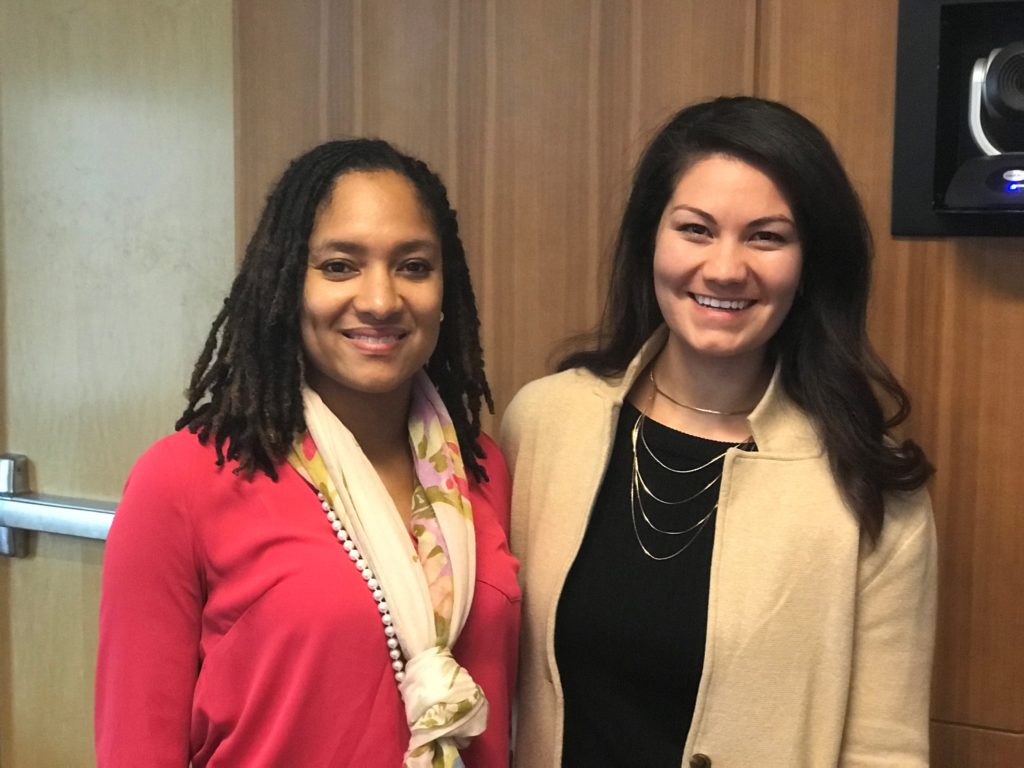
Dr. Sheritta Strong and Graduate Student Laura Flores
On Oct. 10, Laura Flores discussed challenges specific to under-represented populations in medical school as part of a presentation titled, “The Color of Medicine.”
Flores, a first-year graduate student in the Medical Degree/ Ph.D. Scholars Program, was honored in the Walls Do Talk Challenge sponsored by She Leads Healthcare and Harvard University. She was one of two winners. Flores won the public vote for her presentation “Walls.”
The contest focused on creating an anti-bias learning environment in medical schools. Submissions are the student’s vision of what a typical medical school or hospital-affiliated portrait wall would look like in that context.
Flores said she wanted to participate in the challenge for a few reasons. A native of New Mexico, which has a large Hispanic population, Flores said she never really felt different until she moved to Nebraska after being accepted in the M.D./Ph.D. program. It was during her first year at UNMC, Flores said she began to hear unflattering statements that alluded to the only reason she was admitted to medical school was due to her race and not her ability.
Laura Flores says about being a Hispanic woman in medical school: “I desperately want this wall to come down and reveal a strong Hispanic woman – a woman I am proud of. But for now, it reflects loneliness; a feeling minority students experience too often.”
Flores has begun speaking about issues specific to the under-represented population in small groups and large groups.
“Being asked to speak to large groups helps me feel like I belong. It helps me feel empowered,” Flores said. “I think it’s a huge deal to get this out into the open, especially in a place like Nebraska. Without doing these large group meetings, no one would hear about it. When it’s just us four students, it’s easy to talk about it because we all feel the same. It’s intimidating to talk to people who don’t feel the same way that you do.”
Flores’ presentation also discussed the importance of mentors. Flores said of the importance of children having a mentor: 55 percent are likely enroll in college, 78 percent volunteer, 130 percent are likely to hold leadership positions and 90 percent also become mentors.
“Mentorship leads to a sense of belonging,” Flores said. “They are there to tell you that you belong, that you’re in medical school for a reason. It’s good to hear that from someone who has some power because I could tell myself that all day long and never believe it.”
Laura, thank you for sharing your perceptions of the UNMC campus climate from the perspective of a female Hispanic student. As a successful student in a very rigorous program at UNMC, you are a much-needed role model for young people from Nebraska’s growing Hispanic community who might otherwise feel that admission to a UNMC health professions education program isnot an attainable goal. Keep up the great work!